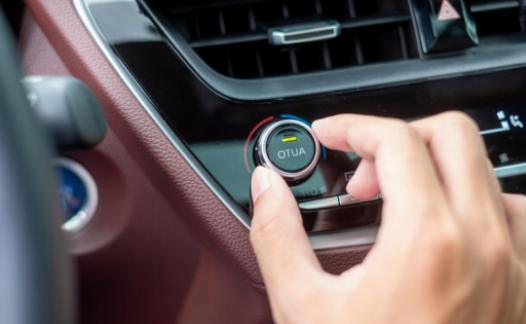As a car owner, it's crucial to recognize the significance of maintaining your vehicle's air conditioning system. The often-overlooked components of air conditioning hoses and lines are vital to the functionality of your car's AC unit. Neglecting these essential parts can lead to a host of issues and costly repairs down the line. In this article, we'll delve into the role of air conditioning hoses and lines, common symptoms of faulty AC components, the repercussions of neglecting routine maintenance, and the long-term consequences of ignoring AC system upkeep. Understanding the potential damages and cost implications of delaying necessary repairs will help you make informed decisions about the health of your vehicle's air conditioning system.

Understanding the Role of Air Conditioning Hoses and Lines
Air conditioning hoses and lines play a crucial role in the functionality of your car's air conditioning system. These components are responsible for carrying the refrigerant – the substance that cools the air – from the compressor to the condenser, evaporator, and back to the compressor. The hoses and lines are designed to withstand high pressure and temperature changes as the refrigerant cycles through the system. Without properly functioning hoses and lines, the air conditioning system would not be able to effectively cool the air inside your vehicle. Therefore, it is essential to ensure that these components are regularly inspected and maintained to prevent any potential issues.
Common Issues and Symptoms of Faulty AC Components
Faulty air conditioning hoses and lines can cause a number of issues with your car's AC system. Some common symptoms of faulty AC components include:
1. Leaking refrigerant: A noticeable decrease in cooling performance or the presence of oily residue around the AC hoses and connections may indicate a refrigerant leak.
2. Noisy operation: A loud hissing or gurgling sound coming from the AC system could be a sign of a leak or blockage in the hoses or lines.
3. Poor air flow: A restriction or blockage in the AC hoses can lead to reduced air flow from the vents, resulting in insufficient cooling.
4. Hot air from vents: If your car's AC is blowing warm or hot air instead of cold air, it may indicate a problem with the hoses or lines.
5. Visual damage: Cracks, kinks, or physical damage to the AC hoses and lines can lead to leaks and system inefficiency.
6. System failure: A complete failure of the AC system can occur if the hoses and lines are severely damaged or neglected.
It is important to address these symptoms promptly to prevent further damage to the AC system and avoid costly repairs. Regular inspection and maintenance of the air conditioning hoses and lines can help identify and address any issues before they escalate.
The Importance of Routine Maintenance
Routine maintenance of your car's air conditioning hoses and lines is crucial in ensuring that your AC system functions properly. Regular inspections and maintenance not only help prevent costly repairs but also keep the air conditioning system running efficiently. By consistently checking and maintaining these components, you can avoid potential damages and ensure that your car's interior remains cool and comfortable.
Potential Damages and Repairs from Neglected AC Systems
Neglected air conditioning systems can lead to potential damages that require extensive repairs. The most common issues related to neglected AC systems include leaks in the hoses and lines, which can result in a loss of refrigerant. This can cause the AC system to work harder than it should, leading to potential damage to the compressor and other components. In addition, debris and moisture can enter the system through leaks, causing corrosion and further damage to the components. When left unchecked, these issues can lead to more extensive and costly repairs, including the need for hose and line replacement, compressor repairs, and refrigerant recharge. Regular maintenance and prompt repairs can help prevent these damages and ensure the longevity of the AC system.
Cost Implications of Delaying Air Conditioning Repairs
Delaying air conditioning repairs can have significant cost implications. When a component of the air conditioning system is not functioning properly, it can put extra strain on the entire system, leading to increased fuel consumption. Furthermore, the longer the issue is left unattended, the more likely it is to cause further damage to other components of the system, resulting in even costlier repairs down the line. Additionally, neglected air conditioning systems may also lead to decreased resale value of the vehicle, as potential buyers may be hesitant to purchase a car with a malfunctioning AC system. Therefore, it is important to address any issues with the air conditioning system as soon as they are identified in order to avoid unnecessary expenses in the long run.
Long-Term Consequences of Ignoring AC Maintenance
Neglecting the maintenance of your car's air conditioning system can lead to long-term consequences that can be costly and inconvenient. Over time, the accumulation of dirt, debris, and moisture in the AC system can lead to corrosion and deterioration of the hoses and lines. This can result in leaks, reduced efficiency, and ultimately, complete malfunction of the AC system.
If left unchecked, the continued operation of a neglected AC system can place additional strain on other components of the car, potentially leading to more extensive and expensive repairs. Furthermore, a malfunctioning AC system can compromise the overall comfort and safety of the vehicle, especially during hot weather or long drives.
In the long run, neglecting the maintenance of your car's air conditioning system can result in significant repair costs, decreased fuel efficiency, and a lower resale value of the vehicle. Therefore, it is important to prioritize routine maintenance of the AC system to avoid the long-term consequences of ignoring its care.
